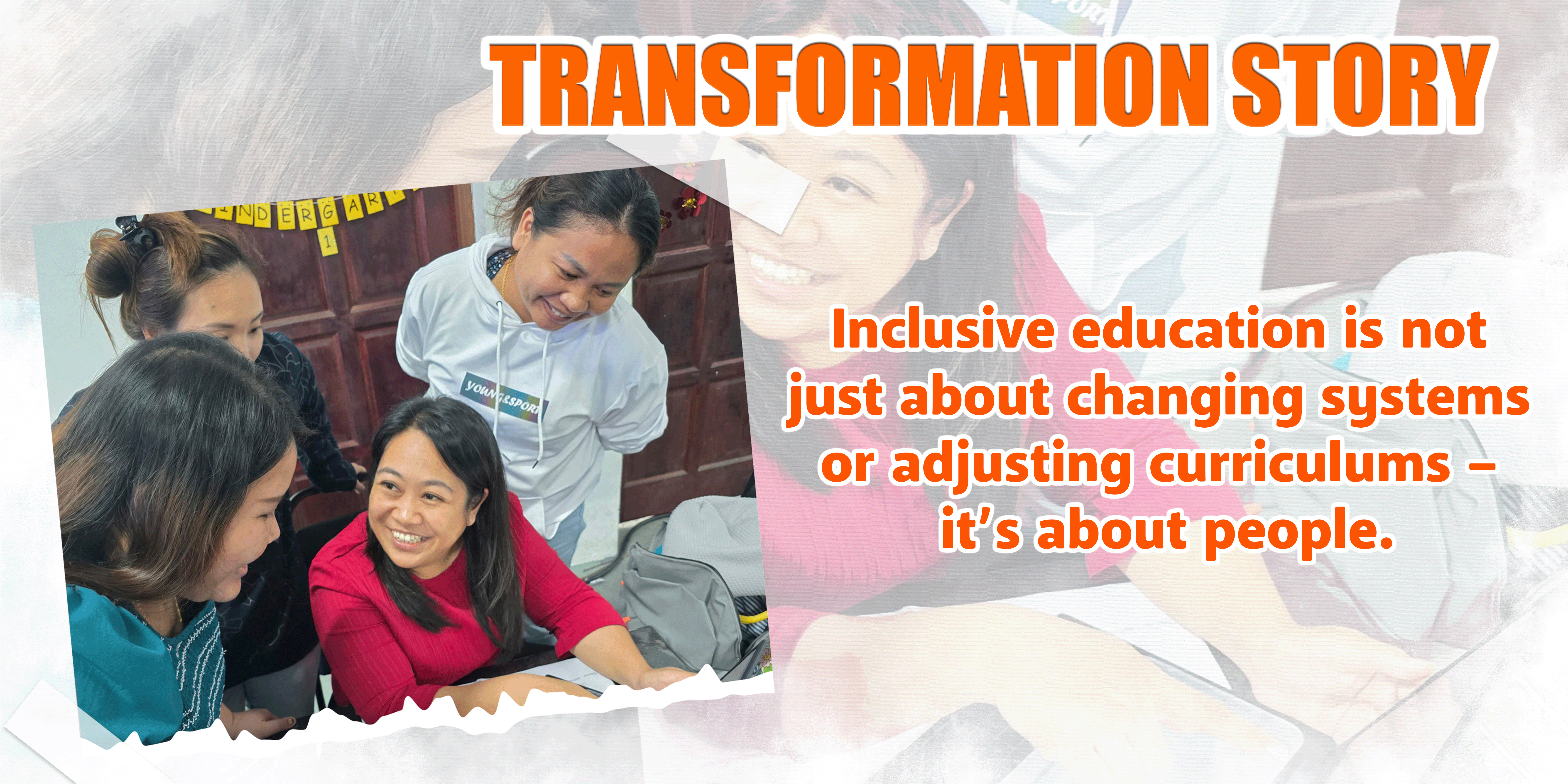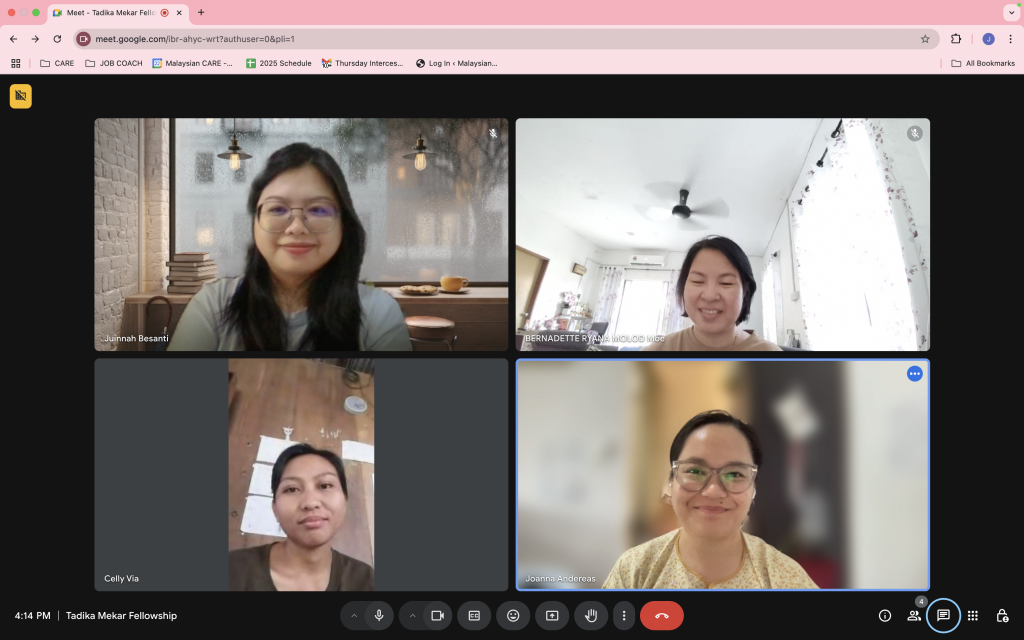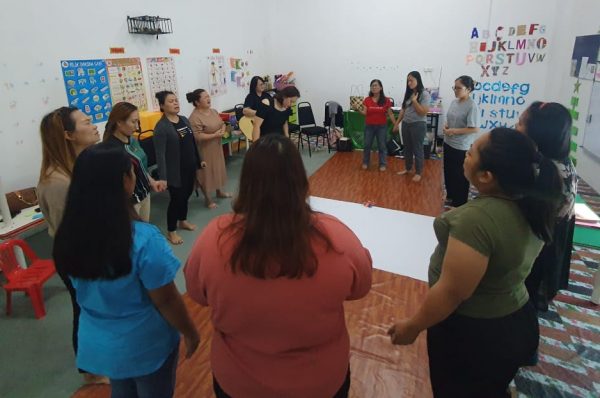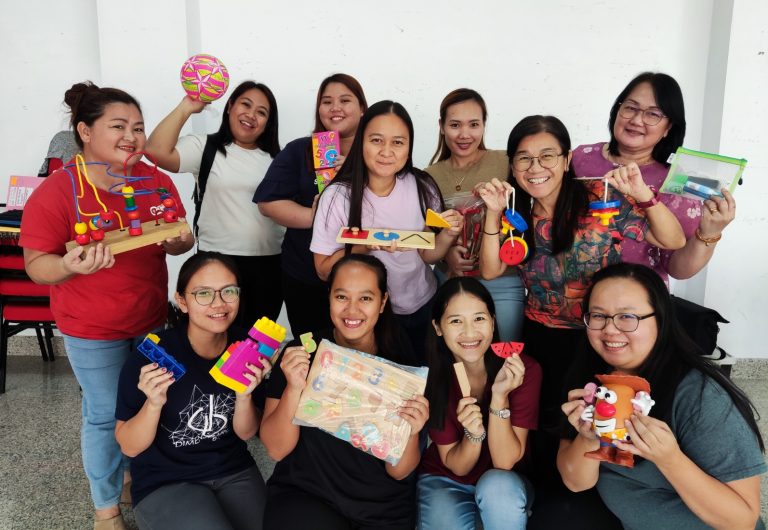
Inclusion Begins with Us: Journey of Fellowship and Transformation
Inclusive education is not just about changing systems or adjusting curriculums – it’s about people. At the heart of it all are relationships: the trust between teacher and child, the support between colleagues, and the shared commitment to see every child flourish. In our journey with Tadika Mekar
and Tadika Adiwira through the Preschool Inclusive Education (P.I.E), we see that real transformation starts not in classrooms or policies, but in hearts.
Tadika Mekar in Sabah
In the quiet village of Kampung Timug, where Tadika Mekar stands, brokenness is deeply felt – in families, in relationships, and in the systems meant to serve the community. As part of a rural initiative under Malaysian CARE, we recognised early on that our efforts alone were not enough. So we began where we could – with fellowship.
A simple gathering with local teachers, guided by prayer, Scripture and honest conversation. At first, it felt uncertain. Some were hesitant, unsure of what to expect. But we took a small step of faith. As we prayed, worshipped and shared life together, hearts began to soften. Trust began to grow.

This space became a sacred ground where fears were voiced and burdens shared. We found ourselves drawn to the image of Moses, Aaron and Hur – holding each other up in the midst of battle. (Exodus 17:10-12) The teachers here, though often overwhelmed, began to see themselves as
part of something greater: a movement of hope and restoration.
God is slowly transforming not just the teachers, but also the community. Where once there was isolation, now there is connection. Where there was confusion, now there is clarity. We have begun introducing elements of inclusive education – small strategies adapted to the village context – and the teachers are responding with courage and love.

Tadika Adiwira in Sarawak
In Miri, at Tadika Adiwira, the journey towards inclusion took a similar yet uniquely powerful form. Here, the journey began with a shared vision: to create classrooms where every child – especially those with special needs – can grow, learn and belong.
We entered the space as trainers, but quickly became companions. Our sessions were practical – covering how to modify lessons, create sensory-friendly classrooms, and support diverse learners – but they were also deeply personal. Teachers opened up about their struggles, their lack of confidence and their dreams for their students.
Each training began with prayer and devotion, centring our hearts on God’s purpose. Proverbs 22:6 reminded us that inclusive education is more than a technique – it is a calling. Every child has been formed by God with intention, and every teacher is entrusted with nurturing that God-given
potential.

Fellowship was the glue that bound us. Over meals and laughter, we saw the walls come down. These moments helped us move beyond the roles of trainer and trainee – we became partners in ministry, co-labourers in God’s work.
In walking with the teachers, we also discovered deeper truths. Inclusion isn’t just about children with special needs – it’s about embracing everyone with the heart of Christ. And as the teachers began to see their students through that lens, they also began to see themselves differently: capable, called and chosen.
Inclusion Begins with Us
In both Sabah and Sarawak, the journey is still unfolding. There are still challenges – lack of resources, limited training, and cultural gaps– but the foundation is being laid in something much stronger: relationship and faith.
It’s not merely about access or accommodation – it’s about seeing every child and every teacher as made in the image of God, worthy of
love and belonging.
As we journey with the local preschools and communities, we are reminded again and again: it is people, not programmes, that build relationships. And through these relationships, God is writing stories of transformation– starting with us.
Joanna and Sharon – a Sabahan and a Sarawakian – are united by the love of working with children, a calling to journey with people with disabilities, and sharing a meal of local Bornean food.



